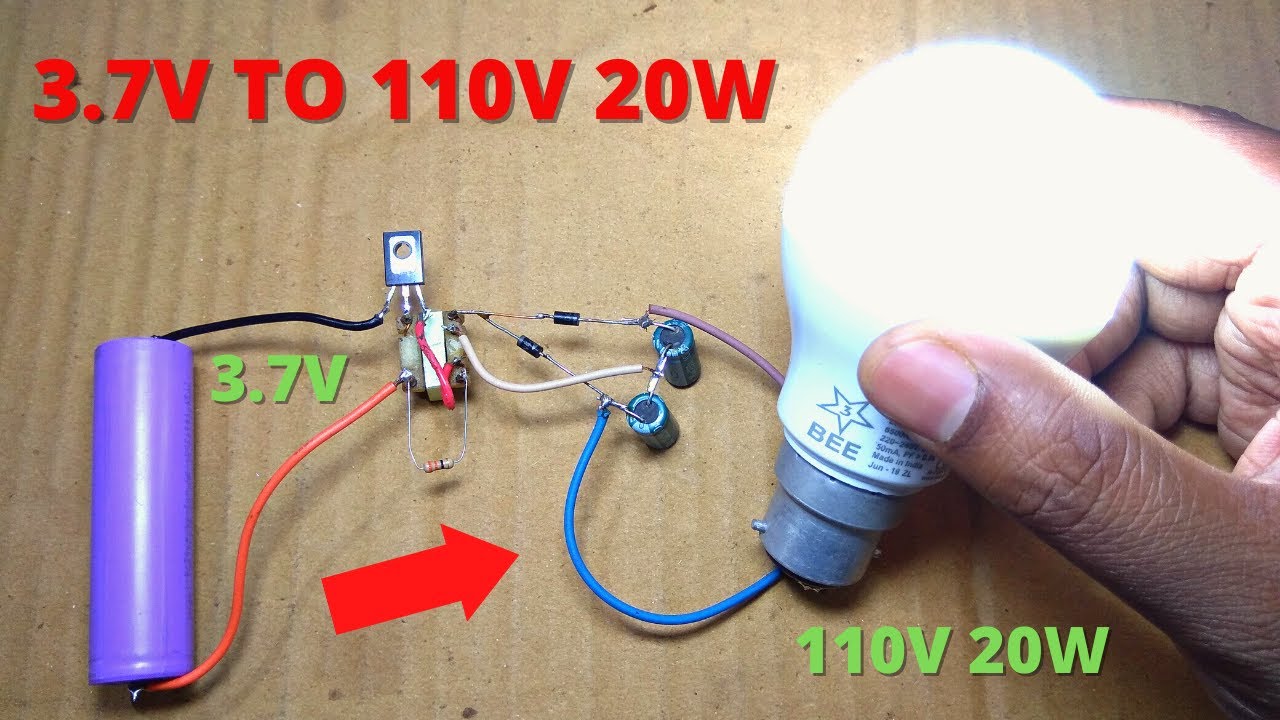How to make simple inverter 3.7V DC to 120V AC
In this Instructable I will instruct you to make your own 1.5v DC to 220v AC inverter with less number of components.
Inverters are often needed in places where it is not possible to get AC supply from the Mains. An inverter circuit is used to convert the DC power to AC power. Inverters can be of two types True/pure sine wave inverters and quasi or modified inverters. These true /pure sine wave inverters are costly, while modified or quasi inverters are inexpensive.
These modified inverters produce a square wave and these are not used to power delicate electronic equipments. Here, a simple voltage driven inverter circuit using transistors as switching devices.
This video gives you all the information you need to build your own 1.5v DC to 220v AC inverter. During the next steps however I will present you some additional information to make the project even simpler.
Here you can find the circuit.
You can see my PCB traces and it is easy to understand while making.
Place all the components on the PCB according to schematic.
Solder all the components carefully.
After circuiting now the time to test with a 220v bulb.
How to make simple inverter 3.7V DC to 120V AC
In this Instructable I will instruct you to make your own 1.5v DC to 220v AC inverter with less number of components.
Inverters are often needed in places where it is not possible to get AC supply from the Mains. An inverter circuit is used to convert the DC power to AC power. Inverters can be of two types True/pure sine wave inverters and quasi or modified inverters. These true /pure sine wave inverters are costly, while modified or quasi inverters are inexpensive.
These modified inverters produce a square wave and these are not used to power delicate electronic equipments. Here, a simple voltage driven inverter circuit using transistors as switching devices.
This video gives you all the information you need to build your own 1.5v DC to 220v AC inverter. During the next steps however I will present you some additional information to make the project even simpler.
Here you can find the circuit.
You can see my PCB traces and it is easy to understand while making.
Place all the components on the PCB according to schematic.
Solder all the components carefully.
After circuiting now the time to test with a 220v bulb.
























No comments:
Post a Comment